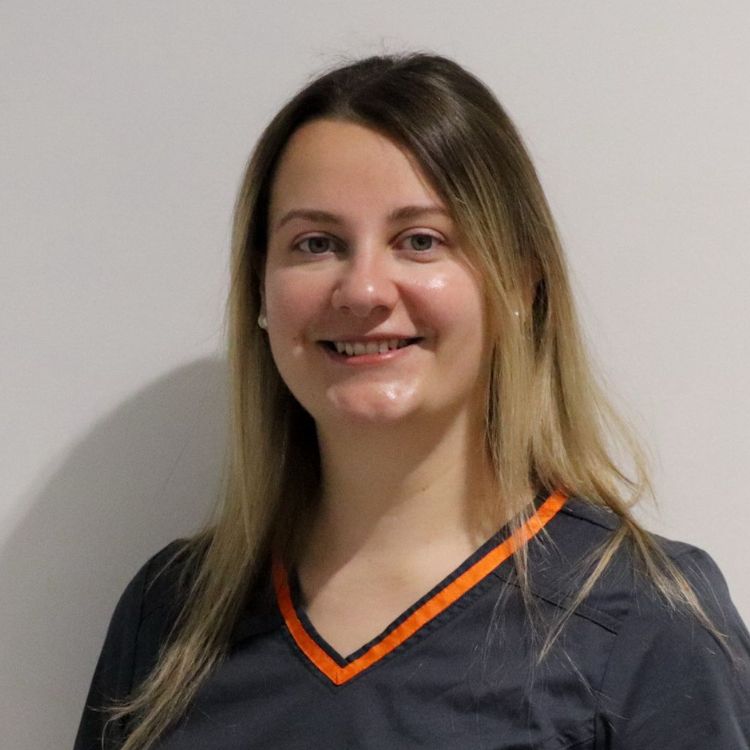Your time is precious, especially on those busy, unpredictable shifts in practice. That’s why we’ve created quick, insightful chats you can dip into over a cuppa. So, pour yourself a brew and take five with two of our inspiring speakers who’ll be taking the stage at this November’s Vets Now ECC Congress.
Helen Philp – Physiology to Future Therapies: A Triple ECC Focus
Throughout her sessions, Helen will guide delegates on a journey from core respiratory physiology to real-time nephrology case conversations, culminating in the cutting-edge of advanced ECC therapies. Whether you’re looking to sharpen your decision-making, deepen your clinical understanding, or explore what is next in critical care, her talks promise practical insights you can take back to practice.

Helen’s career spans clinical practice in the UK, an internship at the University of Edinburgh, and a residency and fellowship at UC Davis in California. Now faculty in Emergency & Critical Care and Extracorporeal Services, she brings a unique blend of clinical experience and research expertise.
What’s the most exciting development you’re seeing right now in critical care medicine?
For me, it’s the rapid progress in advanced supportive therapies that were once reserved for the human ICU. We’re seeing real strides in extracorporeal therapies, mechanical ventilation strategies, and tailored hemodynamic support. It’s opening up possibilities we couldn’t have imagined even a few years ago – and the best part is how quickly these therapies are translating into meaningful outcomes in practice.
How do you balance evidence with intuition?
Evidence is always my anchor – it ensures what we do is grounded and defensible. But in critical care, patients don’t always follow the textbook. That’s when intuition, shaped by experience and physiology, comes in. I see it less as balancing and more as blending: evidence gives me the framework, and intuition helps me adapt it to the patient in front of me.
Why does going back to physiology matter in ECC?
Because physiology is the language our patients speak. Machines, lab results, and therapeutic trials are all tools – but physiology tells us what the patient actually needs. If you can interpret what’s happening at that level, you can cut through the noise and make clearer, faster decisions in emergencies.
Your sessions cover everything from pulmonary physiology to nephrology and advanced therapies – what’s the one thing you hope delegates take away from them?
That critical care doesn’t have to feel overwhelming if you understand the “why” behind your choices. Whether it’s managing a tricky ventilator case, deciding when to intervene with fluids, or considering extracorporeal support, physiology will guide you. If delegates leave with renewed confidence in that foundation, I’ll be delighted.

Ela Mederska – From ECGs to Emergencies: Building Confidence in Cardiac Care
From arrhythmias to advanced heart failure, cardiac emergencies are some of the most complex and nerve-wracking cases ECC teams face. At this year’s Congress, Ela will guide delegates through real cardiac scenarios, ECG interpretation, and critical decision-making, offering practical strategies you can use the next time a patient walks through the door in crisis.
Ela graduated in 2013 and spent six years in general practice, during which she completed a Certificate in Cardiology. She then undertook a rotating internship and a cardiology residency at the University of Liverpool. Alongside her training, Ela worked for five years as a Vets Now locum in emergency and critical care. She has a strong interest in interventional cardiology and currently works as a referral cardiologist at Blaise Veterinary Referrals. Ela also holds a further qualification in teaching and is passionate about education and mentoring within the veterinary profession.
Cardiac emergencies can feel intimidating – what’s your top tip for staying calm and making good decisions under pressure?
Start with the basics – check the heart rate, rhythm, and breathing pattern, before reaching for drugs. A quick clinical exam and POCUS can often point you in the right direction and help you stay focused under pressure.
Across your talks, there’s a strong focus on practical reasoning. Why is this such an important skill for ECC clinicians?
Practical reasoning bridges theory and reality. Real life is rarely textbook, and this skill gives us the tools to adapt quickly, problem-solve in the moment, and make the best choices for each patient.
What excites you most about attending congress and sharing your expertise?
I love the energy of congress – bringing people together, sparking new ideas, and learning just as much from the questions and discussions as from the lectures themselves.
When you’re not teaching or tackling tricky cases, how do you like to switch off and recharge?
Lately I’ve been getting into triathlon, so most of my downtime is spent swimming, cycling, or running. It’s a fun excuse to be outdoors and a great way to clear my head after a busy day.
Book your place at this year’s ECC Congress and view the full speaker programme here.
